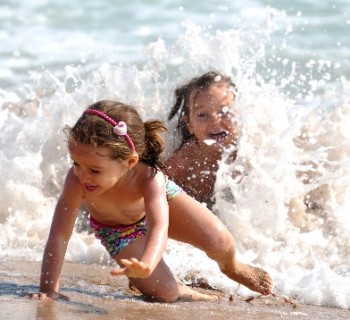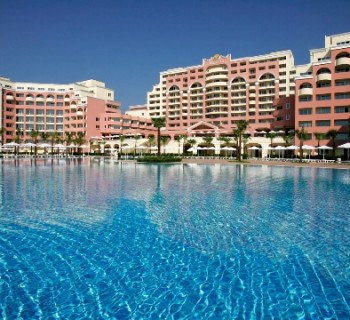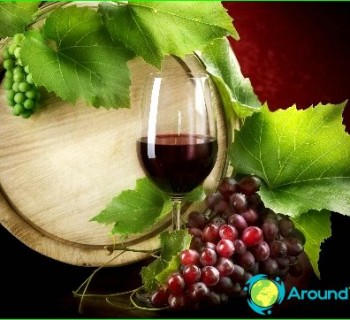Bulgarian cuisine
Bulgarian cuisine has a lot in common with the culinary traditions of Greece, Turkey and other Balkan countries..
National cuisine of Bulgaria
Vegetables are widespread in the country - they are used both fresh and pickled, they are baked and stewed in pots with feta cheese, and are also successfully combined with meat, fish, dairy, and egg products. Pork, lamb, beef are used for meat dishes. If you are a meat eater, try “scara mash” - assorted different types of kebabs and cutlets, which are grilled. Dishes are usually flavored with spices and herbs such as thyme, bay leaf, pepper, mint, garlic.
If we talk about holiday dishes, then on St. George's Day it is customary to treat yourself to fried lamb, on New Year's - to cook kapama (stew with sauerkraut), and on Easter - sweet cakes “kozunaki”.
Popular dishes of the Bulgarian cuisine:
- “shop salad” (it is made from tomatoes, sweet peppers, feta cheese, greens, onions);
- “tarator” (sour milk soup with fresh cucumbers, garlic, crushed walnuts, grape vinegar);
- “gyuvech” (meat stewed with vegetables);
- “plakia” (fish stewed with vegetables);
- “kawarma” (baked mushrooms, bell peppers, meat and onions).
Where to taste the national cuisine?
Before visiting restaurants of Bulgarian cuisine, you should prepare for the fact that hearty and large portions of dishes will be waiting for you there..
In Sofia, you can look into “Hajidraganovite Kashchi” (it is recommended to try meat with porcini mushrooms with a creamy sauce, as well as the evening program of this institution includes listening to the orchestra of Bulgarian musical folklore), in Burgas - in “BMS” (here you can enjoy Bulgarian dishes, where price and quality are successfully combined), in Plovdiv - in “Dayana” (in this restaurant you should order cold soup toritor and eggplant salad), in Nessebar - in “Stariat kesten” (in this institution you will be offered to enjoy deliciously cooked lamb and Bulgarian wine).
Cooking courses in Bulgaria
You can get better acquainted with local dishes at master classes and culinary lessons at restaurants of Bulgarian cuisine (it is advisable to find out the schedule in advance). And if you would like to enjoy some colorful food, you can visit one of the Bulgarian villages, where you will be treated to lamb stew and a dish of gyuvech, and will also be allowed to take part in the cooking process..
It will not be superfluous to come to Bulgaria during the period of the International Gastronomic Festival “Premier” (November, Bansko) or the Fish and Mussel Festival (September, Kavarna), where guests will be able to taste dishes made from these products and participate in cultural and entertainment events.


